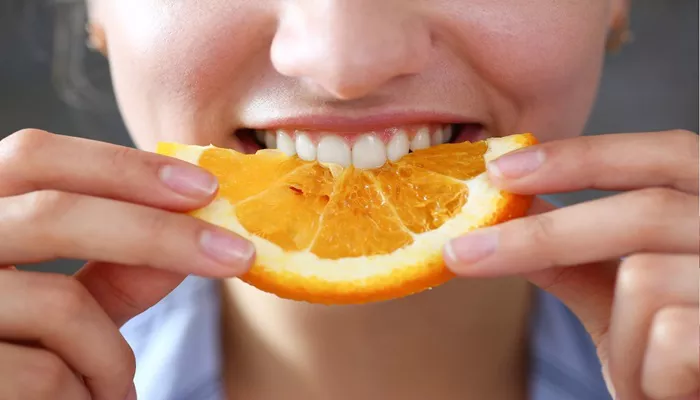Bleeding gums are a common dental symptom experienced by many individuals. It often indicates underlying issues such as gum inflammation or gum disease. While bleeding gums may sometimes result from aggressive brushing or trauma, dietary factors also play a significant role in triggering or worsening this condition. Understanding what foods cause bleeding gums is essential for maintaining optimal oral health and preventing more serious dental problems.
The Role of Gum Inflammation and Gum Disease in Bleeding Gums
Before exploring the foods that contribute to bleeding gums, it is important to understand the underlying dental conditions involved. Gum inflammation, known medically as gingivitis, is the earliest stage of gum disease. It is characterized by redness, swelling, and bleeding of the gums. If left untreated, gingivitis can progress to periodontitis, a more severe gum disease that affects the bone supporting the teeth and can lead to tooth loss.
Bleeding gums are a hallmark symptom of both gingivitis and periodontitis. These conditions occur due to bacterial plaque accumulation on the teeth and gums, causing an immune response that inflames the soft tissues. Diet can either exacerbate or alleviate these inflammatory processes.
Foods That Can Cause or Worsen Bleeding Gums
1. Sugary and Refined Carbohydrates
High consumption of sugary foods and refined carbohydrates (such as white bread, pastries, and candy) feeds the harmful bacteria in the mouth. These bacteria produce acids and toxins that irritate the gums, causing inflammation and bleeding. Sugars also promote the formation of dental plaque, a sticky biofilm that harbors bacteria responsible for gum disease.
2. Acidic Foods and Beverages
Acidic foods and drinks like citrus fruits (oranges, lemons), tomatoes, vinegar-based dressings, and carbonated sodas can erode the enamel and irritate the gums. The acidity lowers the pH in the oral cavity, creating an environment conducive to bacterial growth and gum inflammation. Acidic exposure weakens gum tissue, making it more susceptible to bleeding when disturbed.
3. Alcohol
Alcoholic beverages can dry out the mouth, reducing saliva production. Saliva plays a vital role in neutralizing acids and flushing away food particles and bacteria. Reduced saliva increases plaque accumulation and gum irritation. Moreover, alcohol can impair the immune system, reducing the body’s ability to fight gum infections that cause bleeding.
4. Spicy Foods
Spicy foods containing capsaicin or similar compounds can aggravate sensitive or inflamed gums. While they do not directly cause gum disease, they may worsen discomfort and bleeding in individuals already suffering from gum inflammation.
5. Hard and Crunchy Foods
Eating hard foods such as nuts, chips, or crusty bread can sometimes cause mechanical trauma to fragile or inflamed gums. This can lead to bleeding, especially when gum tissue is already weakened due to underlying inflammation or disease.
Foods That Help Prevent Bleeding Gums and Support Gum Health
While certain foods can worsen gum bleeding, other foods support healthy gums and reduce inflammation. Incorporating these into the diet can help improve overall oral health.
1. Foods Rich in Vitamin C
Vitamin C is essential for collagen production, which helps maintain the integrity of gum tissue. A deficiency in vitamin C can lead to scurvy, a disease characterized by bleeding gums and gum inflammation. Citrus fruits (in moderation, due to acidity), strawberries, kiwi, bell peppers, and leafy greens are excellent sources.
2. Foods High in Calcium
Calcium strengthens teeth and jawbone, providing a solid foundation for gum tissue. Dairy products such as milk, cheese, and yogurt are rich in calcium. Fortified plant-based alternatives also provide benefits. Strong bones support gum health and reduce the risk of gum disease progression.
3. Leafy Greens and Fibrous Vegetables
Leafy greens like spinach and kale are loaded with vitamins and minerals beneficial to gum health. Their high fiber content stimulates saliva production, which helps neutralize harmful acids and wash away bacteria.
4. Green Tea
Green tea contains antioxidants called catechins that reduce inflammation and inhibit bacterial growth in the mouth. Regular consumption of green tea has been linked to improved gum health and reduced bleeding.
Additional Factors Affecting Bleeding Gums
Beyond diet, several other factors influence gum bleeding and overall gum disease risk. These include:
Poor Oral Hygiene
Failure to remove plaque through regular brushing and flossing allows bacteria to build up, leading to gum inflammation and bleeding. Diet alone cannot compensate for poor dental care.
Smoking
Tobacco use impairs blood flow to the gums, reducing healing and increasing susceptibility to infections. Smokers often experience more severe gum disease with frequent bleeding.
Systemic Health Conditions
Diseases such as diabetes, blood disorders, and hormonal changes during pregnancy can increase the risk of bleeding gums. Nutrition plays a supportive role but must be managed alongside medical care.
Medications
Certain medications, including blood thinners and some antiseizure drugs, can cause or worsen gum bleeding. Discussing medications with a healthcare professional is important.
How to Manage Bleeding Gums Through Diet
To reduce bleeding gums caused or worsened by foods, consider the following dietary guidelines:
Limit intake of sugary snacks and beverages to reduce bacterial growth and plaque formation.
Reduce consumption of acidic foods and drinks, or consume them with meals to minimize enamel and gum irritation.
Avoid excessive alcohol intake to maintain saliva flow and immune defenses.
Include a balanced intake of vitamin C and calcium-rich foods to strengthen gums and teeth.
Stay hydrated to support saliva production.
Incorporate anti-inflammatory foods such as green tea and leafy vegetables.
Conclusion
Bleeding gums are often a sign of gum inflammation or gum disease, conditions that can worsen without proper care. While dental hygiene practices remain paramount, diet plays a crucial supportive role. Certain foods, particularly sugary, acidic, and alcohol-laden items, can contribute to gum irritation and bleeding. Conversely, nutrient-rich foods that promote collagen synthesis, reduce inflammation, and strengthen oral structures help protect gum health.
By understanding what foods cause bleeding gums and adjusting dietary habits accordingly, individuals can take proactive steps to support their oral health. Alongside regular dental check-ups and good hygiene, a mindful diet is a powerful tool in preventing and managing bleeding gums and gum disease.

